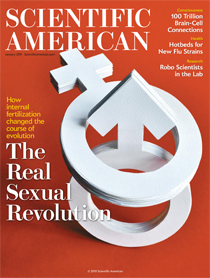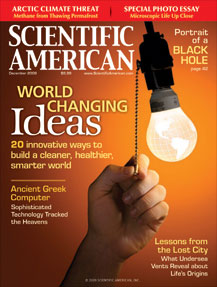Can Data Determine Moral Values?
Ever since the rise of modern science, an almost impregnable wall separating it from religion, morality and human values has been raised to the heights. The “naturalistic fallacy,” sometimes rendered as the “is-ought problem”—the way something “is” does not mean that is the way it “ought” to be—has for centuries been piously parroted from its leading proponents, philosophers David Hume and G. E. Moore, as if pronouncing it closes the door to further scientific inquiry. (continue reading…)
read or write comments (21)
Psychological research reveals how
and why liberals and conservatives differ
Humans are, by nature, tribal and never more so than in politics. In the culture wars we all know the tribal stereotypes of what liberals think of conservatives: Conservatives are a bunch of Hummer-driving, meat-eating, gun-toting, hard-drinking, Bible-thumping, black-and-white- thinking, fist-pounding, shoe-stomping, morally hypocritical blowhards. And what conservatives think of liberals: Liberals are a bunch of hybrid-driving, tofu-eating, tree-hugging, whale-saving, sandal-wearing, bottled-water-drinking, ACLU-supporting, flip-flopping, wishy-washy, namby-pamby bed wetters.
Like many other stereotypes, each of these contains an element of truth that reflects an emphasis on different moral values. Jonathan Haidt, who is a psychologist at the University of Virginia, explains such stereotypes in terms of his Moral Foundations Theory (see www.moralfoundations.org), which he developed “to understand why morality varies so much across cultures yet still shows so many similarities and recurrent themes.” Haidt proposes that the foundations of our sense of right and wrong rest within “five innate and universally available psychological systems” that might be summarized as follows: (continue reading…)
read or write comments (21)
Michael Shermer, speaking with Dr. Moira Gunn, teaches us about being skeptical.
download 10MB MP3
Comments Off on ITConversations
Michael Shermer joins Larry Mantle to talk about his book The Science of Good and Evil in which he explains how humans transformed the moral sentiments displayed in many primate species — shame and trust, for instance — into ethical principles.
download streaming audio
Comments Off on The Science of Good & Evil (AirTalk 89.3 KPCC)



